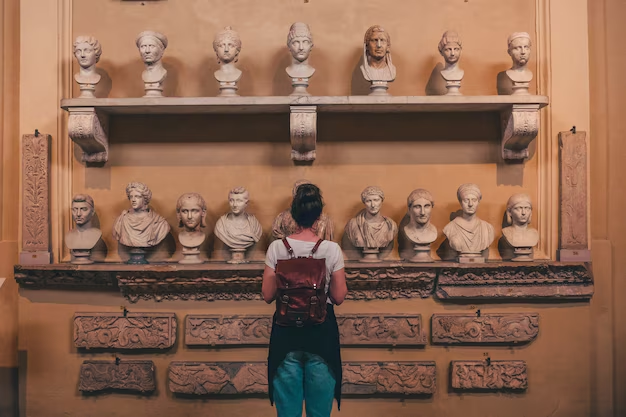
The ancient civilizations of Mesopotamia, Egypt, Greece, Rome, China, India, and Mesoamerica were more than just the cradles of early human societies. They laid the foundation for much of modern culture, technology, politics, and philosophy. While their cities have long since crumbled and their empires faded into history, their legacies continue to shape the way we live today. In this article, we’ll explore how the achievements of these ancient civilizations have influenced modern society in various key areas.
1. The Birth of Written Language and Recordkeeping
One of the most profound contributions from ancient civilizations was the development of written language. Mesopotamians are credited with creating the first form of writing: cuneiform. This wedge-shaped script, inscribed on clay tablets, was crucial for keeping records, conducting trade, and passing down knowledge. Similarly, the Egyptians created hieroglyphics, a pictorial language that helped preserve their history.
These writing systems laid the groundwork for the written word as we know it today. The legacy of written language can be seen in modern forms of communication, including books, newspapers, the internet, and social media. Written records have allowed societies to preserve their history and transmit knowledge across generations, creating an unbroken chain of information that connects ancient and modern cultures.
2. Architecture and Engineering Marvels
The architectural feats of ancient civilizations continue to inspire modern construction. The Egyptians built monumental pyramids as tombs for their pharaohs, structures that stand as a testament to their engineering expertise. Similarly, the Romans revolutionized architecture with the invention of the arch, the dome, and the aqueducts. The Colosseum and Roman roads have had an enduring impact on architectural design, influencing the development of structures like stadiums, bridges, and highways.
Modern skyscrapers, bridges, and tunnels are a direct evolution of the architectural and engineering techniques that date back to these ancient civilizations. Many of the principles of stability, design, and materials used in modern architecture have roots in ancient practices, with engineers still drawing inspiration from the ingenuity of their predecessors.
3. Philosophy, Law, and Government
The ancient Greek philosophers, such as Socrates, Plato, and Aristotle, established the foundation for Western philosophy. Their exploration of ethics, politics, and metaphysics has shaped the way modern societies approach questions of justice, morality, and governance. For instance, the concept of democracy, first practiced in Athens, laid the groundwork for modern democratic governments, where power is vested in the people.
Roman law, meanwhile, provided the foundation for many legal systems around the world. The Roman concept of “jus civile” (civil law) is the precursor to much of modern legal thought and practice, and it influences the civil law systems used in countries like France, Italy, and Spain. Even in common law systems, like that of the United States and the United Kingdom, the principles of Roman law have had a significant impact.
Ancient civilizations also influenced the structure of government. The Roman Republic’s system of elected officials and checks and balances inspired the development of modern parliamentary systems. Concepts such as citizenship, voting, and legal equality can trace their roots to ancient practices.
4. Mathematics and Science
The ancient Egyptians and Babylonians were among the first to develop basic mathematical concepts, including the use of geometry for land measurement and the creation of the number system. The Babylonians also contributed to the development of astronomy, creating the foundation for modern celestial navigation.
Ancient Greek scholars, such as Euclid, Archimedes, and Pythagoras, significantly advanced mathematics and physics. Euclid’s “Elements” became a cornerstone of modern geometry, while Archimedes’ work on the principles of levers and buoyancy is still relevant in physics today. The Greeks were also pioneers in the field of medicine, with Hippocrates often referred to as the “father of medicine.”
Modern science owes much to the work of these ancient mathematicians, astronomers, and philosophers. The scientific method, developed during the Renaissance and Enlightenment periods, is based on empirical observation, experimentation, and reasoning—principles first established by Greek thinkers.
5. Religion and Spiritual Thought
Religion in the ancient world provided moral and ethical frameworks that shaped personal and collective behavior. The polytheistic religions of ancient Egypt, Mesopotamia, and Greece influenced the development of spiritual practices across the world. For example, the religious texts of ancient Mesopotamia, such as the Epic of Gilgamesh, contain stories of divine beings that influenced later religious traditions.
The teachings of Buddha in India and Confucius in China have had a lasting impact on the development of Eastern philosophies and religious practices. Hinduism, Buddhism, and Confucianism continue to shape the values and practices of millions of people worldwide.
In the West, Christianity, which emerged from the Jewish traditions of the ancient Middle East, has played a dominant role in shaping Western civilization’s cultural, social, and moral standards. Similarly, Islam, which arose in the 7th century CE, has had a profound impact on the Middle East and beyond, influencing art, architecture, science, and law.
6. Trade, Commerce, and Globalization
Ancient civilizations were early pioneers in trade and commerce. The Silk Road, which connected China to the Mediterranean world, facilitated the exchange of goods, ideas, and culture between East and West. The ancient Egyptians, Phoenicians, and Greeks built vast networks of trade that allowed for the exchange of goods such as textiles, spices, and precious metals.
This legacy of trade and commerce has directly contributed to the globalization we experience today. The modern global economy relies on the interconnectedness of nations, markets, and businesses, a system that evolved from the early trade routes established by ancient civilizations.
7. Art and Culture
The art and cultural achievements of ancient civilizations are still celebrated today. Greek and Roman art, sculpture, and literature have profoundly influenced the arts, inspiring the Renaissance and shaping Western artistic traditions. The ancient Egyptians were known for their detailed frescoes, statues, and monumental architecture, much of which can still be seen in museums today.
Similarly, the ancient Indian and Chinese civilizations have contributed greatly to art, music, literature, and theater. Indian epics such as the Mahabharata and the Ramayana continue to influence literature and storytelling around the world, while Chinese calligraphy and painting remain highly respected art forms.
Conclusion
The legacy of ancient civilizations is undeniable. From the principles of democracy and law to the marvels of architecture and engineering, the cultural, intellectual, and technological achievements of ancient societies continue to influence and inspire us. These civilizations may no longer exist, but their contributions have become integral parts of the foundation upon which modern society is built. Understanding and appreciating their impact allows us to recognize the enduring connection between our past and present, shaping a future that respects and builds upon the lessons of history.
